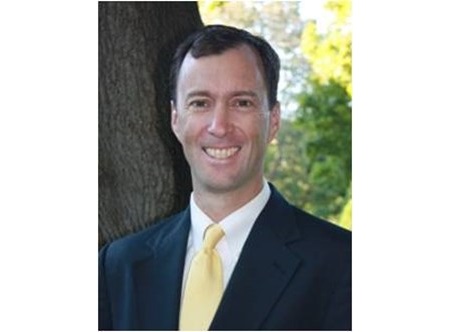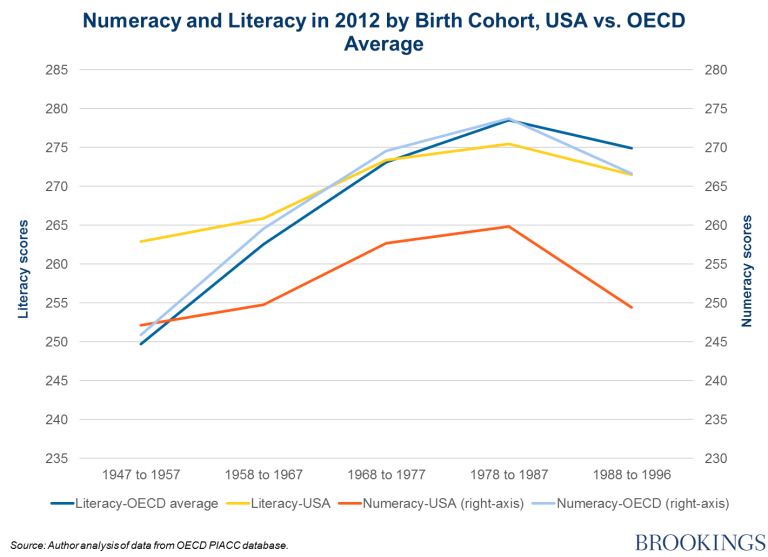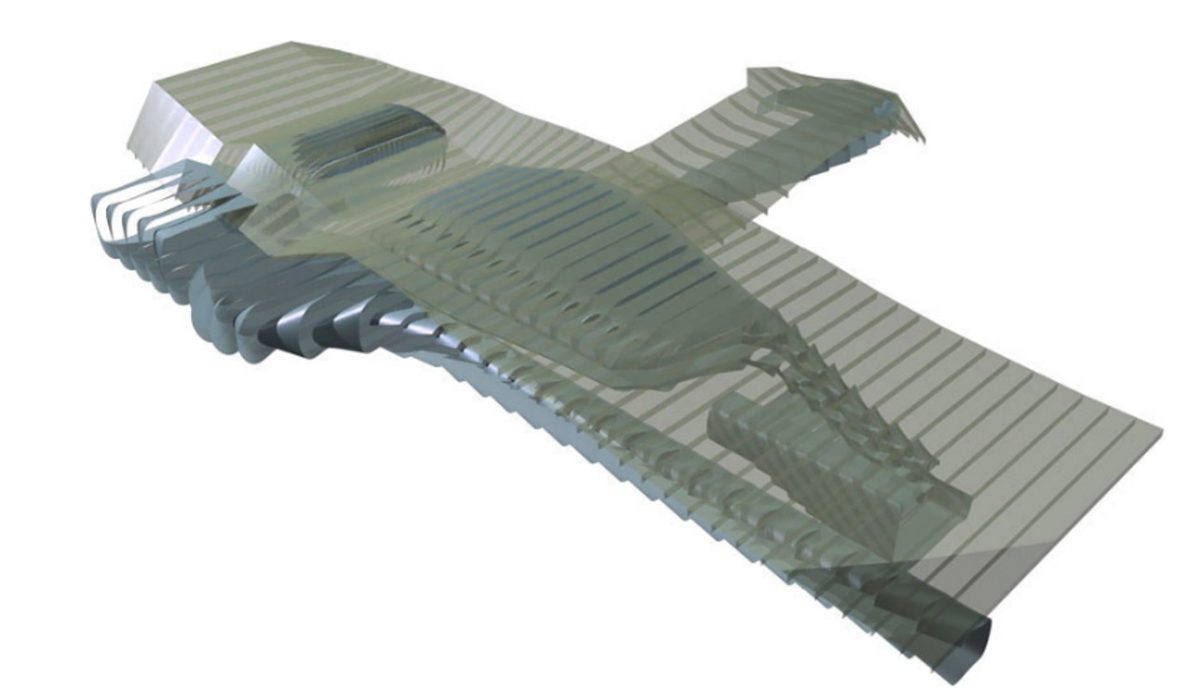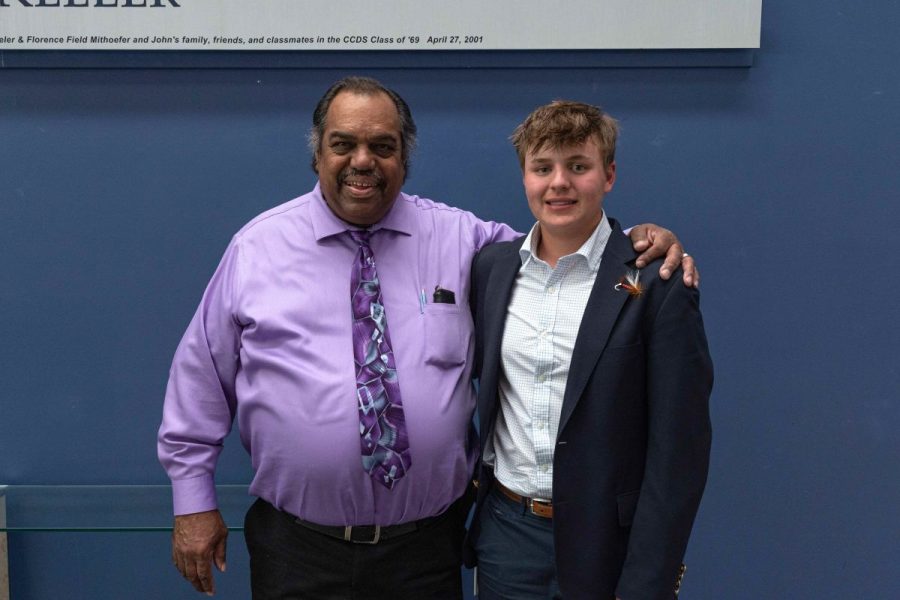By Margaret Hodson ’16, Editor-in-Chief
As members of the women’s tennis team competed in a mummy-wrapping contest using toilet paper, new Head of School Anthony Jaccaci happened to be strolling towards the Gordon R. Wright Tennis Complex with Athletic Director Chris Milmoe. The team members remained focused on the monumental team day task at hand, but Head Coach Lynne Schneebeck stopped to chat. Occurrences such as this have become commonplace as Mr. Jaccaci begins to familiarize himself with the community. Women’s tennis was just one of several sports practices visited by Mr. Jaccaci on that August morning. On that same day, he not only observed the football and soccer practices, but also met with several teachers including seventh grade Culture Studies teacher Andrea Rogers, and Upper School History teacher Merle Black. Since his “official” arrival in Cincinnati on July 3rd, Mr. Jaccaci has been a very busy man.
The day after arriving in Cincinnati, Mr. Jaccaci grabbed some coffee and began to walk around campus. He noted the abundance of deer, and thought: “I’m not in Shanghai anymore.” One telltale sign is the blue skies—a rarity in China due to the air pollution. As Indian Hill is a mecca of natural beauty and not a bustling Chinese metropolis, Mr. Jaccaci is looking forward to “getting back in touch with nature.” He and his family are living in the Broadwell House, and have been settling in nicely. Mr. Jaccaci noted, “I came from a teaching family–my father was a teacher–so I grew up on campus. This feels very comfortable to me, to be living on Broadwell, on campus.” With the help of Assistant to the Head of School Ashley Ward and the resources of the Indian Hill Historical Society, Mr. Jaccaci has also been trying to learn some of the history behind his new home.
History, in general, is very important to Mr. Jaccaci. He explained, “I’m a history geek, and so going all the way back to ’26 and asking ‘Why was the school first founded?’ and trying to be true, I think it’s my responsibility to be true to the history of the school as well.” Mr. Jaccaci has been reading the Country Day history book Five Miles Farther, and even acquired a 1926 image from the Indian Hill Historical Society of the first bus of boys to arrive at Country Day. The most important way Mr. Jaccaci has been learning about the school and its heritage is by meeting with its community members, listening, and asking questions. In regards to familiarizing himself with the community, Mr. Jaccaci noted, “I have some thoughts and ideas about what’s important in education, so what I then need to do is get an understanding of the community and what really is wonderful about the school, and connect that with what I think is really important in education.” Mr. Jaccaci has asked to meet with each member of the faculty and staff for half an hour, and has spoken with many already. He’s also met with alumni, and recently attended a development office alumni function with his wife, Lucia, in downtown Cincinnati. He’s been meeting with the trustees and cabinet members, even the school’s lawyer. Most importantly, however, he’s been talking with the students.
Engaging with and getting to know the student body is Mr. Jaccaci’s self-stated most important goal of the 2015-2016 school year. He plans to have “satellite offices” and office hours in both the Middle School and Lower School, spending a half day per week in each of these divisions. The Middle School office has already been constructed; it’s in the small alcove to the left of the stairs across from the stage. There is no specific space for Mr. Jaccaci in the Lower School yet, and he anticipates likely using some sort of conference room at first. As of now he has no concrete plans to build a “satellite office,” in the Upper School, but this should not be a problem as his actual office is in close proximity to the Upper School. Mr. Jaccaci believes these conversations will not only familiarize him with the community, but help him to center a conversation on student learning. This is another one of his major goals for the upcoming school year.
In addition to meeting the community, “getting to know the school well and asking the question ‘Why?’,” Mr. Jaccaci has been working on both the North Campus Project and long-range planning for the school’s future, in conjunction with Head of the Board of Trustees Jon Hall. The North Campus project is moving from the conceptualization phase to the funding and building stages. Mr. Jaccaci noted, “The North Campus project as it was communicated to the community in January will be slightly different in the end.” Mr. Jaccaci said he is not quite ready to share these changes with the community, but for now the building stage has already begun. It is going to occur in many phases, the first being construction to the left of the tennis courts of a new maintenance facility. A new Early Childhood Center will take the space where the current maintenance shed stands. After that, renovations and improvements will occur in the athletic center. Mr. Jaccaci has a timeline for the construction but a public end date has not been set.
As Mr. Jaccaci becomes familiar with the community, we will also begin to learn more about his teaching style and philosophies. One key word for Mr. Jaccaci? Ambiguity. He said, “You have to be able to communicate well and understand a basis of knowledge, but combine that with skills that will help you get through an ambiguous future…I don’t know what the future is going to look like. But I know it’s going to be ambiguous. And increasingly so. Is the future that I face and the future that you face any different than the future that our grandparents faced when World War II was looming?…Isn’t that the human story, facing challenges and having the courage and the perseverance to make something, to persevere, to progress?” The world is changing very quickly, and we don’t know how it will look in the future. For this reason, Mr. Jaccaci firmly believes in both “the ability to make a good, ethical decision,” and “the ability to persevere through challenge.”
Mr. Jaccaci has spent a lot of time thinking about ethics and believes the world can’t be seen as a zero sum game. In his State of the School speech earlier this year, Mr. Jaccaci explained the importance of “developing the character to make decisions between what is right and what is right, not necessarily between what is right and wrong.” This is an idea borrowed from Rushworth Kidder, an educator who started a group on ethics. Mr. Jaccaci explained that while the classic dichotomy in ethics is framed as right versus wrong, that is not always the case. Frequently, we are faced with two decisions where both have good outcomes or noble intentions. Mr. Jaccaci provided the example of a politician in China who must decide between developing the economy and protecting natural resources. In the example, there is not one glaringly “right” option and one that is clearly “wrong.” Instead, it’s a hard decision precisely because both options are good. In cases such as this, Mr. Jaccaci explained, “You’re going to have to rely on some sort of inside, internal compass, [an] ethical compass.” Mr. Jaccaci noted that teaching ethics can be difficult: educators must “really build it into the curriculum where students have a chance to practice it…How do we intentionally allow students to make choices, and then to learn from those choices?”
In addition to stressing an understanding of ethics in concordance with the core virtues of Country Day, Mr. Jaccaci also believes in the importance of a global outlook. He noted, “Because of communication, transportation, students in school today will have careers and lives touched by people and decisions made around the world unlike any generation that has come before.” Speaking about his own development as an educator, Mr. Jaccaci said that having an international education helped him to challenge his own assumptions about the definition of a good education. Living in China and having such an international outlook as also allowed him to travel to many interesting places with his family, something he loves to do. He and his family have visited a plethora of countries such as Japan, Cambodia, Vietnam, New Zealand, and Sri Lanka.
After discussing some more serious topics with Mr. Jaccaci in the interview, I wanted to ask him a few more lighthearted questions aimed at exposing his “non-academic” personality to the Country Day community. His favorite color is blue, which he swears is not a ploy to win over the avid blue-and-white devotees that are Country Day students. In his free time he enjoys watching sports, especially soccer and football. His favorite ice cream flavor is orange sherbert, favorite desert is crème brûlée. Favorite food? “At the moment it’s not Chinese.” Mr. Jaccaci was quick to add that really does like Chinese food, he’s just eaten a lot of it over the past five years. He expressed his hope to invite the Chinese exchange students to his house “to make some Chinese dumplings and then share it with the rest of the community.” His favorite animals are horses, dogs, and cats. His family does not currently have any pets, although they used to. They are currently “interested in bringing a pet or two to campus.” In regards to TV, Mr. Jaccaci noted, “I haven’t watched TV in five years. I don’t know what’s on anymore. I don’t even know how to turn on the TV anymore because I understand you don’t even get TV anymore, you just go to Netflix and download that.” When he did watch TV, he and his wife enjoyed The Wire. His favorite movie of all time is Star Wars: “I’ve got an app on my phone that tells me how many days until the next Star Wars movie is coming out. My boys put that on, not me. But I still refer to it.” Finally, he does have somewhat of a life motto—he’s made a very important life choice based on a bumper sticker.
Coming out of the Fletcher School of Law and Diplomacy, Mr. Jaccaci was faced with two choices. You could say it was a choice between “right and right,” between two equally favorable options. Mr. Jaccaci explained, “I knew coming out of Fletcher, I had a choice. I knew I wanted to be a teacher, but I said, I’ll go to China, I’ll make a million dollars, ten years later, and then I’ll become a teacher. And then I remember just thinking about that, because that’s a big obviously choice to make, and I saw a bumper sticker that said ‘Don’t postpone joy.’” With that, Mr. Jaccaci knew. He would not postpone his joy; he’d become an educator—immediately. Had he not made that decision, he might not have made his way to Country Day for the 2015-2016 school year. He might never have entered into his new home, his new community, or Mrs. Rogers’ 7th grade Culture Studies classroom: a classroom where he noted many colorful bumper stickers, and one in particular that had an especially resonant message—“Don’t postpone joy.” Speaking of this bumper sticker, Mr. Jaccaci said, “What that said to me is: Listen to your calling. If your calling is teaching, or if your calling is x,y, or z, you can always make logical choices about chasing a big salary or something like that, but that really, if you can find something or a calling in life that is also joyful, follow it.”







